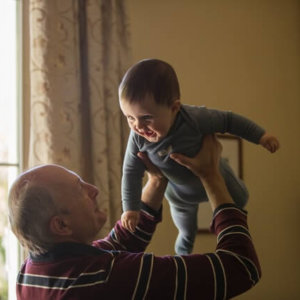Bridging Generations with Legacy

One of the things that bridges generations is called Legacy. It is what we teach through our life story. When I was a child, I thought adults knew everything. Why would they be put in charge of so much like bedtimes, meals, and important jobs like teaching and nursing if they didn’t know a lot more than I?
Now that I’m the adult in the room, I realize how much I don’t know—and how much I continue to learn from those who are decades younger.
It can be scary. It’s not exactly dementia. It’s a different language! And hard to keep up!
It’s a curious reversal, isn’t it? Once upon a time, I was the one being taught to tie my shoes, say “thank you,” and not interrupt.
Now my grandchildren (and occasionally strangers in checkout lines) teach me how to scan a QR code, talk to my phone, or manage yet another password.
But what strikes me most isn’t how the tools have changed—it’s how values have evolved.
Younger generations carry a different kind of courage.
They talk openly about mental health, speak truth to systems that once silenced, and question assumptions my generation didn’t even realize we’d inherited.
Sometimes I feel admiration. Sometimes I feel bewilderment. Often I feel both at once.
When I was young, respect for my elders was a given. We were taught to defer, to listen more than speak. I was never allowed to call a teacher by their first name. “Listen to your elders” was the 11th commandment.
Now I see young people who expect conversation, not hierarchy. They search the internet instead of the library for information on topics that interest them.
And that opens many more doors than I had when I was fifteen.
They are also heavily influenced by what we call ‘false news’. That can be uncomfortable. But it’s also their reality, and what they are learning is how to parse what they hear.
Maybe what they’re teaching us is that wisdom doesn’t always flow downhill.
Remembering Then, Noticing Now
I sometimes tell stories that begin, “When I was your age…” and immediately hear how ancient I sound.
But those stories matter. They remind me what life looked like before convenience became expectation.
When I was young, the phone was attached to the wall and the milk came in glass bottles. We walked to the library to do research and waited a week for film to be developed.
We couldn’t scroll through other people’s lives—we simply lived our own.
The younger ones I know live in a world of instant answers and constant sharing.
Yet, beneath all that technology, their longings are not so different from ours: to be seen, to belong, to find meaning.
The details change, but the heart remains the same.
Sometimes when I share a memory—a snow day without screens, or a letter that took three days to arrive—I watch the surprise in their faces. Then the questions begin:
- What did you do all day?
- How did you find people?
- Weren’t you bored?
It’s in those questions that real connection begins.
Legacy in Both Directions
I have learned that wisdom doesn’t always come wrapped in years.
I’ve met teenagers whose kindness humbles me and young adults whose vision gives me hope.
And yes, I’ve also met elders whose patience teaches me that not every hill that attracts me is worth climbing.
Bridging generations isn’t about comparison—it’s about conversation.
When we share our stories across the years, something subtle happens. The edges soften. The distance narrows.
It doesn’t require a family tree to make this happen. Sometimes it begins with a neighbor, a student, or someone at church whose rhythm of life moves faster—or slower—than our own.
What if we saw these relationships not as gaps to close, but as bridges to cross?
The Work of Legacy
Lately, I’ve been thinking about what we pass on—not just possessions or keepsakes, but insights. The small, ordinary lessons that accumulate quietly over a lifetime.
How do we hand those down? How do we invite the next generation not just to remember us, but to know us?
That question has been living in me for a while. It’s part of what led me to begin something called the Legacy Circle. A small gathering of women who meet to reflect, write, and share the stories that have shaped them.
By the time you read this, the current Circle will have already begun. The notebooks will be open, the pens will be moving, the laughter (and maybe a few tears) already shared.
But there will be another Legacy Circle beginning, waiting quietly in the wings for the next cycle.
If You Could Sit Together
If you could sit for an hour with someone fifty years younger—or fifty years older—what would you want to know? What would you want them to know about you?
Maybe it’s not advice they need. Maybe it’s honesty. Or forgiveness. Or the reassurance that the mistakes they’re making now won’t define them forever.
And perhaps, as you talk, you’d discover that they have something to teach you too—a new way of seeing the world, or of forgiving it.
That’s the beauty of crossing generations.
We stop trying to be right and start trying to understand.
Invitation
So, here’s my challenge:
Have a conversation with someone whose memories or dreams are a different color than your own.
Ask what life feels like from where they stand.
Then tell one story from your own life that shaped you.
And if something stirs in you—an urge to capture those stories before they fade—keep an eye out for the next Legacy Circle. You’ll be in good company there.
Get TheReflectivePen each week!!
